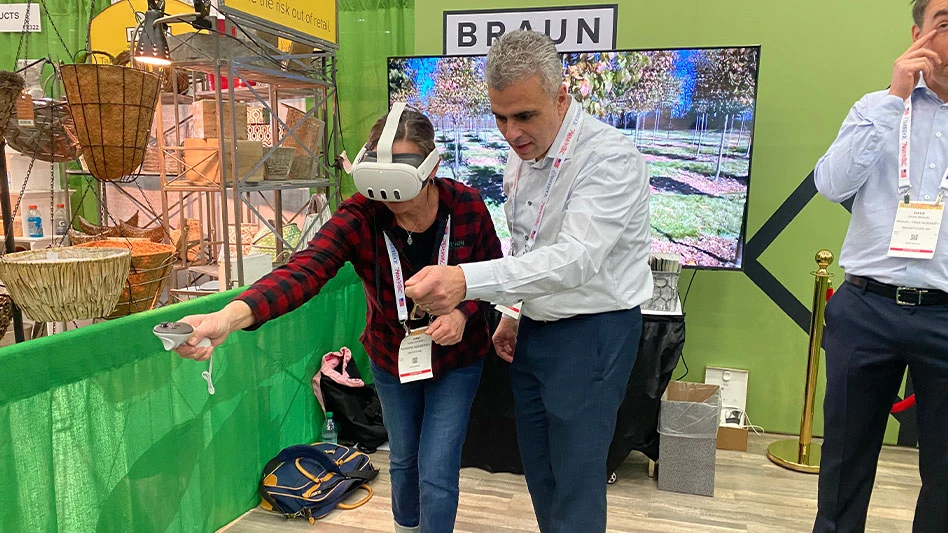
On Wednesday, April 29 at 2 p.m., the Horticultural Research Institute and AmericanHort are hosting a webinar tilted ‘What do you need to know about Ralstonia?’. The event is free. To register, click here. The event description is as follows:
Ralstonia solancearum race 3 biovar 2 (R3B2), a federal quarantine pest, was recently confirmed in a single geranium variety in a greenhouse in Michigan, the first confirmed case in the US since 2004. Diseased geraniums planted in the landscape can potentially infect other plants, including tomatoes, potatoes, peppers, and eggplant, and must be destroyed.
Since the detection was confirmed, AmericanHort has collaborated with the importer of the geranium and with USDA APHIS toward the goal of a rapid, targeted, and effective response that minimizes unnecessary interruption. HRI is proud to join this effort and host a webinar on the basics of R3B2, such as how it spreads and prevention strategies, to help educate the green industry. APHIS will be on hand to discuss the recent action plan, and Ball Horticultural Co. will share their story.
Webinar Agenda
• Welcome & Introductory Remarks: Dr. Jill Calabro, HRI/AmericanHort Science & Research Director
• Ralstonia Basics & Prevention Strategies: Dr. Caitilyn Allen, University of Wisconsin-Madison
• APHIS Action Plan: Dr. Matt Royer, APHIS
• Ball Horticultural Co. Update: Mike Klopmeyer
• Q&A: All
Speakers
• Dr. Caitilyn Allen, the Ethyl and O.N. Allen Professor, Department of Plant Pathology, University of Wisconsin-Madison
• Dr. Matthew Royer, Associate Deputy Administrator Field Operations USDA APHIS PPQ
• Mike Klopmeyer, President Ball FloraPlant
Latest from Greenhouse Management
- De Vroomen Garden Products celebrates 100 years with new products, global celebrations
- ThinkPlants announces new shrub program
- American Floral Endowment 2025 scholarship applications now open
- Two Proven Winners ColorChoice varieties take top honors in Australia’s 2025 Plant of the Year
- Registration now open for 2025 National Floriculture Forum
- GardenComm hosting 10-session Winter Webinar Series
- Veseris expands in Canada with new Montreal ProCenter and warehouse
- Star Roses and Plants introduces Martha Stewart Rose





